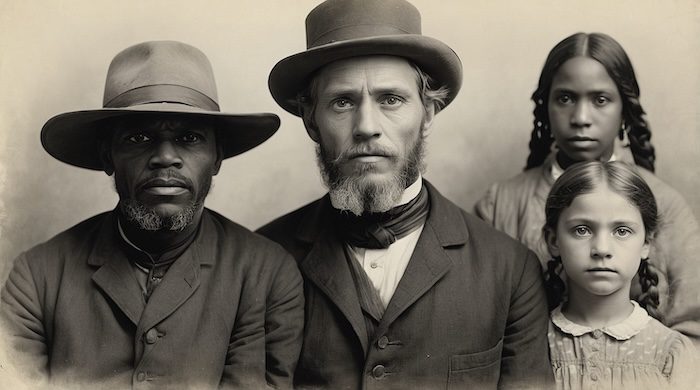African American Chancery Records
Why Chancery Records Matter
Chancery Records relate to slavery because they often document legal disputes and property settlements where enslaved individuals were treated as assets or property rather than persons. These court cases provide critical genealogical and historical insights into the lives of enslaved people, their families, and their forced movements across counties and states.
For African American researchers, chancery cases can reveal unique details that rarely appear in census or probate records, including names, relationships, occupations, and freedom claims.
Information Typically Found in Chancery Records
Chancery cases are often rich in detail. Researchers may find:
- ➡️ Full Names and Nicknames – sometimes the only surviving written record of an enslaved individual’s identity.
- ➡️ Ages and Physical Descriptions – including scars, height, or distinguishing marks.
- ➡️ Skills or Occupations - such as blacksmith, seamstress, carpenter, or cook.
- ➡️ Sales and Transfers – names of buyers, locations, and prices.
- ➡️ Freedom Papers or Manumission Agreements – legal proof of emancipation or attempted manumission.
- ➡️ Witness Testimonies – vivid accounts describing daily life, family ties, and community conditions
📌 Tip: Pay attention to depositions, as they often preserve first-hand voices of both enslaved people and enslavers.
Types of Chancery Cases Related to Slavery
| Case Type | Description | Genealogical Value |
|---|---|---|
| Estate Settlements & Probate | Division of enslaved people among heirs | Identifies family connections, new owners, geographic relocation |
| Partition Suits (Division of Property) | Disputes over dividing enslaved persons as property | Tracks inheritance patterns and ownership |
| Debt & Foreclosure Cases | Enslaved people mortgaged as collateral | Lists auctions, forced sales, buyers |
| Manumission & Freedom Suits | Petitions for freedom by enslaved or free Blacks | Reveals family histories and arguments for liberty |
| Guardianship Cases | Disputes involving enslaved minors or orphans | Sometimes names parents, siblings, or guardians |
| Will & Trust Disputes | Heirs contesting enslavers’ wills | May show contested promises of freedom |
| Post-Emancipation Compensation | Claims for “loss of property” after 1865 | Identifies enslavers and formerly enslaved by name |
Locating Chancery Records
- Ancestry.com
- Library of Congress
- National Archives
- Virginia Memory
Special Research Topics
Marriage and Family Ties
Though not legally recognized, some chancery suits reference “marriages” and family units in testimony.
Guardianship Cases
When minors were inherited, guardianship proceedings recorded their value and sometimes identified family ties.
Ownership Transfers and Migration Patterns
Chancery cases document forced migration, showing how enslaved people were moved between plantations, states, or sold further south.
Division of Property in Inheritance Disputes
Inheritance lawsuits often divided enslaved people among heirs. Records document:
- Names of enslaved persons transferred
-Destinations of relocation (sometimes across counties or states)
- Family separations
Debt Settlements and Foreclosures
Enslaved individuals were mortgaged as collateral. Court filings reveal:
- Auction details
- Names of buyers and creditors
- Transfers across state lines
Legal Battles Over Wills and Trusts
Contested wills often revolved around whether enslaved individuals would be freed or inherited. Some lawsuits exposed attempts by heirs to block promised manumission.

